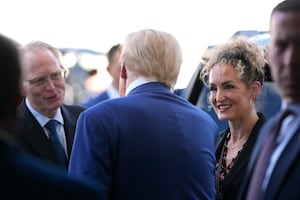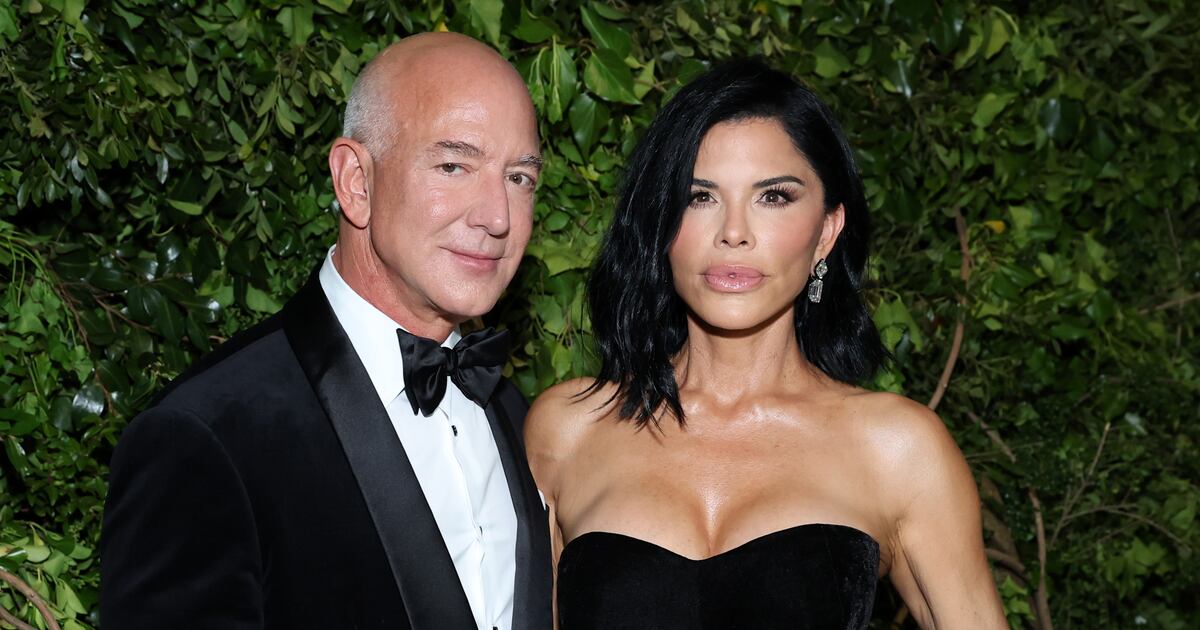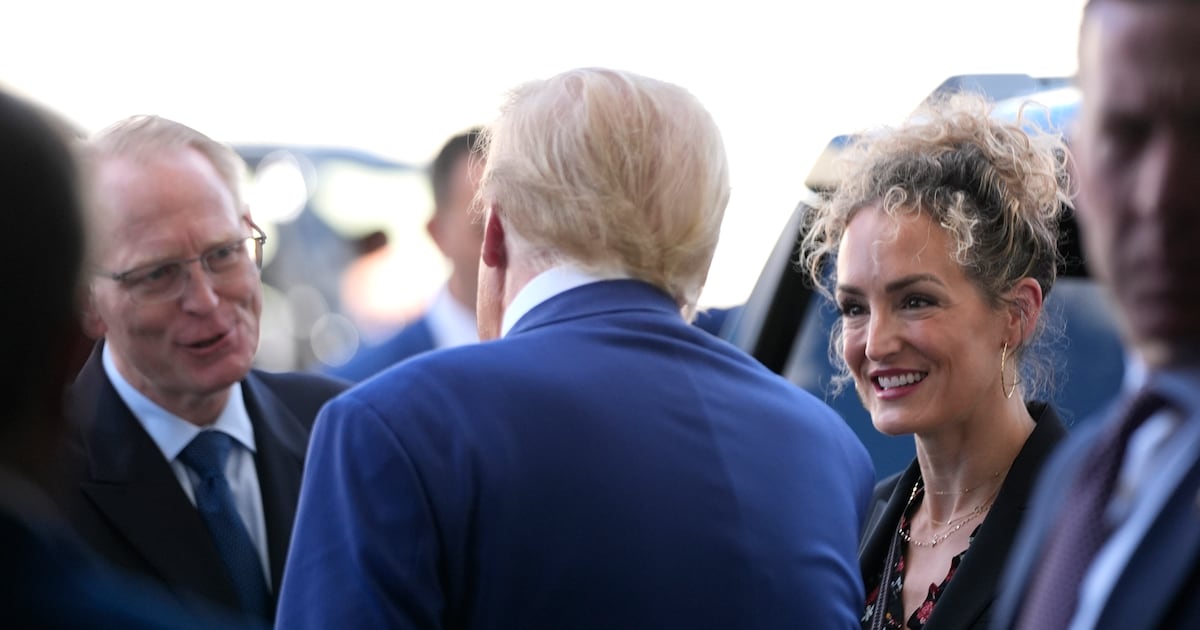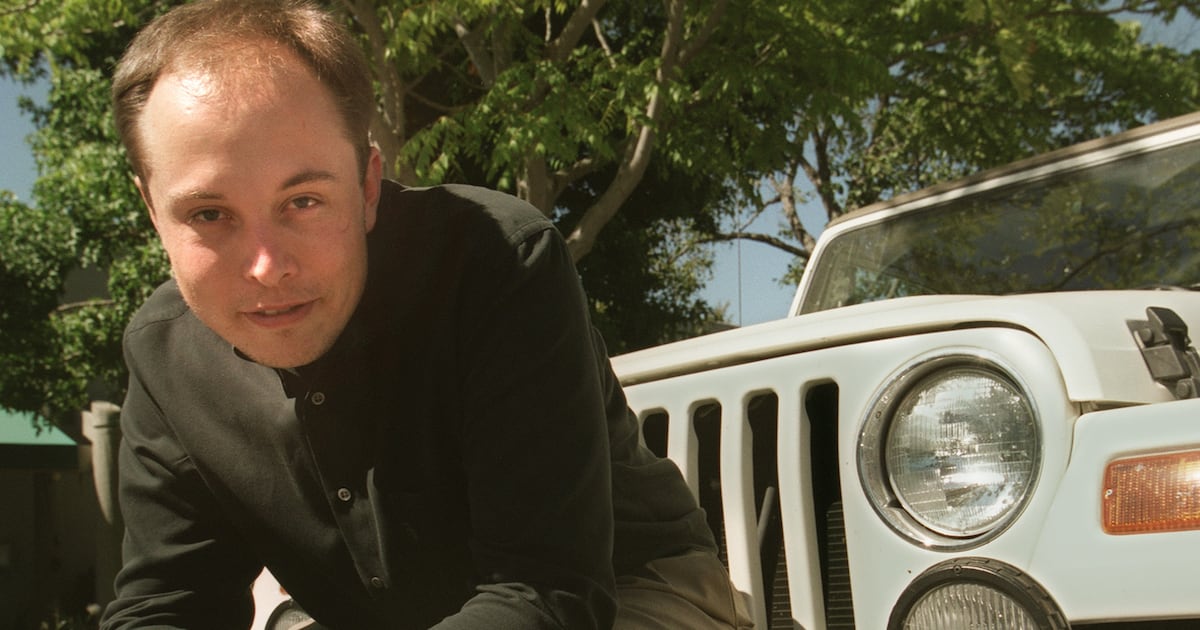Elon Musk worked illegally on a student visa and faced concerns he would be “deported” when he started life in the United States, a bombshell report revealed Saturday.
The billionaire South African-born immigrant also admitted in an email that he “had no legal right to stay in the country” when he ditched his studies and founded a company which he later sold for more than $300 million, The Washington Post reported. His brother was also here illegally, committing what one expert called “fraud upon entry.”
The revelation comes after Musk, the Tesla, X, SpaceX and Starlink CEO went all-in on supporting Donald Trump and repeatedly accused Democrats of trying to flood the country with immigrants who cross the border illegally, a conspiracy theory which has become mainstream in the Republican party. Bloomberg called him “X’s biggest promote of anti-immigrant conspiracies.”
ADVERTISEMENT
His ally Trump is advocating the mass deportation of millions of undocumented migrants. The former president has also ranted about “chain migration.”
But The Post’s detailed reporting about Musk’s own immigration journey shows that the world’s richest man abused his student visa to found his first company, Global Link Information Network, which became Zip2. Investors were so concerned that he could be “deported” that they sought advice from an immigration attorney.
Musk was born in South Africa and, aged 18, obtained Canadian citizenship through his Canada-born mother, Maye. He first studied in Canada, then transferred to the University of Pennsylvania, which gave him a student visa.
In 1995 he moved to Palo Alto where he had a place at Stanford University, which would have given him another student visa. Student visas give holders the right to work part-time to support their studies.
But The Post revealed that Musk never enrolled at all–which would had invalidated his student visa. Instead he worked on his start-up. Dropping out of education to work, even if technically unpaid, is straightforwardly illegal, Leon Fresco, a former immigration attorney at the Department of Justice told the newspaper.
“If you do anything that helps to facilitate revenue creation, such as design code or try to make sales in furtherance of revenue creation, then you’re in trouble,” Fresco said.
Musk has said he recruited his brother to help him run the company. But Kimbal has said he actively lied to border agents, having previously been refused entry at an airport on the grounds that he was working illegally in the U.S. when he was trying to return from visiting their mother in Canada. He got a friend to drive him over the border and lied that they were going to see David Letterman’s show so that he could make what he has described in an interview with journalist Graham Bensinger as a critical meeting with investors.
“That’s fraud on entry,” Ira Kurzban, the former president and general counsel of the American Immigration Lawyers told The Post. “That would make him inadmissible and permanently barred from the United States,” he said, unless the penalties were waived. Additionally, hiring someone without the legal right to work in the U.S. is a federal crime.
The Musks' illegal status worried one investor, Mohr Davidow Ventures, so much that when, in 1996, it put $3 million into the company the agreement included a clause giving the brothers and a third person 45 days to obtain legal status.
Derek Proudian, who was on the Zip2 board and later became CEO told The Post the sentiment of investors was, “We don’t want our founder being deported.” He added, “Their immigration status was not what it should be for them to be legally employed running a company in the U.S.”
Another investor told the newspaper anonymously, “Perhaps naively we never examined whether he was a legal citizen.”
The Post reported that the attorney used by the company told both men not to tell the full truth about their “leadership” roles and to scrub their resumes of American addresses.
Zip2 was sold to Compaq in 1999 for $305 million, with Musk netting $22 million. The company set him on a path which saw him become the CEO of PayPal which in turn led to his involvement in Tesla and founding of SpaceX. He is currently worth $274 billion, according to Forbes. He became a U.S. citizen in 2002. False statements about past immigration status in a citizenship application are illegal and can be grounds for revocation. It is unknown if Musk made any false statements.
In 2005, in an email to Tesla’s co-founders which was submitted to a California court, Musk wrote about going to Stanford, “Actually, I didn’t really care much for the degree, but I had no money for a lab and no legal right to stay in the country, so that seemed like a good way to solve both issues.”
In 2013 the Musk brothers appeared on a panel at the Miliken Institute conference where Kimball said they had been “illegal immigrants,” and Musk jumped it to say it was “a gray area.”
The Beast has asked Musk‘s attorney, Alex Spiro, for comment. The Post said that he, Musk and the manager of Musk’s family office had not responded to their request for comment.






